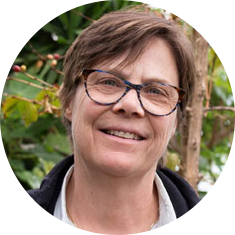Understanding the drivers of clinical disease due to Strep. suis has the potential to lead to novel solutions for preventing this disease. Using big data approaches to explore host, pathogen, and environmental drivers also can be used to explore methods to prevent and control diseases in other livestock species.
What challenge does “Using Big Data to Reduce Production Limiting Diseases of Animals: Streptococcus suis in Nursery Swine” address?
Streptococcus suis (Strep. suis) is a bacterial disease that can cause high levels of morbidity and mortality in nursery pigs, resulting in reduced welfare in affected pigs, lost productivity, and use of antibiotics to control illness. However, Strep. suis bacteria can be found in the tonsils of healthy pigs as well as sick pigs, and the drivers of clinical illness and disease severity are not known.
How will this research address the challenge?
Sargeant and team’s research evaluates potential drivers of clinical illness. By comparing nursery pigs with and without illness, the team are examining factors related to the pathogen (different strains of Strep. suis), the host (the genotype of the pigs) and the environment (viruses and bacteria in the tonsils).
What impact will the project have on agriculture?
The results of this study will improve understanding of drivers of clinical illness due to Strep. suis and will provide input as to where to target interventions to reduce illness in nursery pigs.
Other information
Partners: Arkell swine facility and several private veterinarians / swine producers are participating by allowing samples to be collected from sick and healthy pigs. Several grant proposals in collaboration with swine industry groups are pending.
Collaborators and students: Post-doctoral fellows: Vahab Farzan, Russell Kerr, Rafiq Ahad, PhD students: Kaushalya (“Kash”) Kuruppu, Akshay Chadha, MSc students: Ellisa Giang, LeAnn Denich, Sarah Hill, Jeremy Wong, Research technician: Emily Arndt.
Additional info: We also are conducting a formal scoping review on the use of the words “big data”, “informatics” and “bioinformatics” in the animal health literature. This project involves one PhD student (Ben Ouyang) and several part-time student assistants.



